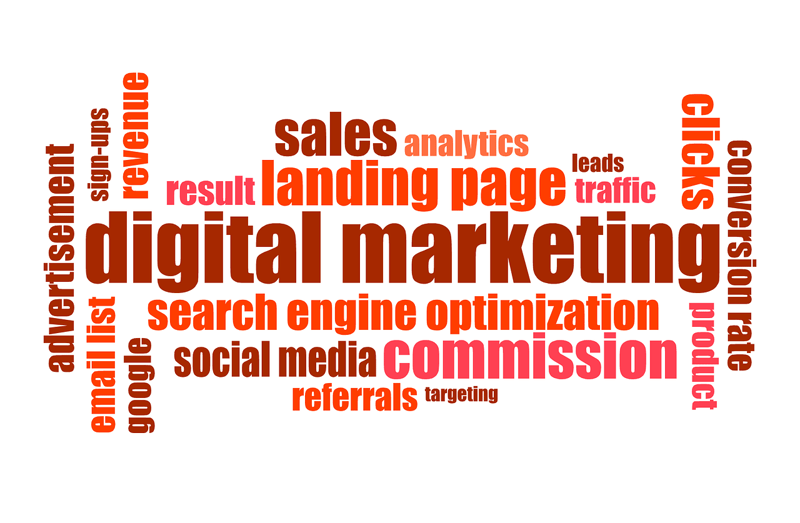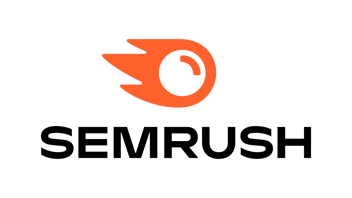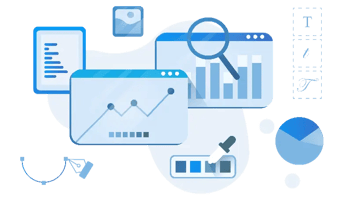How to Successfully Manage Marketing in a Recession?
Marketing is a crucial aspect of any business, and it's especially important during a recession. Many businesses must ramp up their marketing efforts to stay competitive and attract customers in a tough economic climate. However, marketing during a recession can be challenging, as businesses often work with limited budgets and resources.
We'll explore some approaches for managing your marketing during a recession, including how to cut costs, focus on customer retention, and adapt to changing market conditions.
Here are some market data points highlighting the benefits of marketing "the right way" during a recession:
-
Increased brand visibility: A study by the Harvard Business Review found that brands that maintained or increased their marketing efforts during a recession experienced an average market share gain of 1.5% during the downturn and an additional 2.5% after the recession.
-
Consumer spending habits: According to research by Nielsen, 60% of consumers surveyed said they would look for sales or discounts more often during an economic downturn, making it an opportune time to offer value propositions and attract cost-conscious consumers.
-
Competitive advantage: Many businesses cut back on marketing during a recession. By maintaining your marketing efforts, you can seize a competitive advantage and capture the attention of potential customers when your competitors are less active.
-
Increased customer loyalty: A study by Bain & Company revealed that companies that consistently invest in customer loyalty during recessions could increase customer lifetime value and gain market share, even if they face short-term financial setbacks.
-
Digital marketing effectiveness: The rise of digital marketing channels provides cost-effective opportunities during a recession. An Interactive Advertising Bureau (IAB) survey found that 70% of marketers believed digital marketing could effectively drive sales during an economic downturn.
-
Lower advertising costs: During recessions, advertising costs often decrease due to reduced demand. This allows businesses to secure advertising space at lower rates, enabling more cost-effective campaigns and potentially reaching a larger audience for the same budget.
-
Shift in consumer behavior: Economic downturns often lead to changes in consumer behavior. According to a study by Accenture, 45% of consumers surveyed stated that their shopping habits were permanently altered due to the last recession. This shift allows businesses to adapt their marketing strategies and target new consumer preferences.
-
Long-term growth potential: A study by the Institute of Practitioners in Advertising (IPA) analyzed the performance of 50 businesses during previous recessions and found that those who continued advertising saw an average of 1.5 times the sales growth of companies that reduced or halted their marketing activities.
-
New customer acquisition: In a recession, competitors may struggle or leave the business. This creates a gap in the market that proactive marketers can exploit, attracting customers seeking alternatives due to changing market dynamics.
-
Building brand trust: During challenging economic times, consumers gravitate toward brands they trust. Maintaining your marketing efforts and building trust and credibility can strengthen your brand's position and foster long-term customer relationships.
- Going the extra mile: During Covid 19, many companies offered incentives for customers in need. An act of generosity but also a strategy to invest into the longevity of customer relationships critical to your business.
While these statistics indicate potential benefits, adapt your marketing strategies to your business's specific circumstances, needs, and target audience during a recession. Let's look at some of the key areas:
Cut Low ROI Activities
When facing a recession, one of the first things to do is to look at your marketing budget and see where you can increase effectiveness and efficiencies.
Cost always comes in higher and faster than expected; revenue always comes in lower and slower than expected; prepare yourself accordingly.
This could involve
-
implementing ROI metrics. Prioritize higher ROI activities when allocating internal and external resources, streamline efforts to be more efficient, and replace fixed costs with variable costs where possible. These changes will allow you to scale up and down more flexibly;
-
reviewing your fixed costs, such as software subscriptions or fixed in-house costs versus flexible agency fees, and exploring opportunities to find more affordable options;
-
offering voluntary pay freezes or cuts at reduced hours for team members rather than having lay-offs, reducing costs while retaining valuable talent;
- implementing automation. Several marketing automation platforms can help you manage email marketing, social media posting, and lead generation, freeing your team to focus on higher-level tasks.
Drive higher returns or lower your cost. Focus on Return-on-Investment (ROI):
Focus on customer retention.
Retaining and growing your current customers is more important than ever during a recession.
It is easier and more cost-effective to retain and add additional value to existing customers than to attract and convert new ones.
To retain your customers,
-
delight them with high-quality products and services and an exceptional customer experience.
-
Offer incentives or promotions to encourage your customers to continue doing business with you. Examples include referral programs, additional services, or rewards programs to reward your most loyal customers. Essentially, you want to incentivize customers to continue doing better business with you.
Have you considered asking customers what they value most? Platforms like the HubSpot Service Hub offer an excellent toolkit to set up surveys or obtain feedback about offerings they value.
These programs can take various forms, such as points-based systems or subscription-based models. Communicate regularly with your loyalty program members, offer exclusive benefits, and keep them engaged.
Adapt to Changing Market Conditions
One of the challenges during a recession is that market conditions are constantly changing. Be adaptable and flexible in your marketing strategy, and adjust and stay competitive.
-
One way to do this is to closely monitor market and technology trends and consumer behaviors and adjust your marketing efforts accordingly.
-
If consumer spending shifts from in-person to online channels, increase your online presence and digital marketing efforts.
-
AI offering possibilities to increase efficiencies in Marketing is an exceptional opportunity to support and accelerate the digital transformation in your customers' organizations.
-
-
Stay attuned to the needs and concerns of your customers during a recession. This may mean offering flexible payment options, different bundling of services, or better highlighting the value, business impact, and affordability of your products or services.
Utilize cost-effective marketing channels.
Be strategic about where you allocate your marketing budget. Traditional channels like television, print advertising, and paid advertisements quickly become expensive. Several cost-effective marketing channels can help you reach your target audience without breaking the bank.
One way to cut costs without sacrificing the quality of your marketing efforts and without giving up on your marketing strategy is to focus on inbound marketing strategies. Inbound marketing involves creating valuable content that attracts customers to your business rather than relying on outbound tactics like cold calling or spam emails. This can be an effective way to generate leads and build brand awareness without breaking the bank.
For example, social media, content, and email marketing are all relatively inexpensive ways to reach and engage your audience. These channels also offer a high level of targeting and measurement, which can help you track the effectiveness of your marketing efforts.
Focus on Conversions
Conversion rate optimization is pivotal in enabling businesses to make the most of their existing website traffic and marketing initiatives. With limited resources available during a recession, CRO helps maximize the value derived from each visitor, making it a cost-effective and efficient approach.
-
By analyzing user behavior, identifying bottlenecks, and implementing targeted improvements, CRO enables businesses to optimize their conversion funnels, leading to higher customer acquisition and revenue generation.
-
Companies can maximize conversions and achieve robust growth even during a recession by adopting a data-driven approach, enhancing user experience, and implementing personalization strategies.
In a recession, CRO becomes even more crucial as it allows companies to enhance their online presence, align marketing efforts with shifting consumer needs, and drive conversion rates to new heights. By prioritizing CRO, businesses can navigate the challenging landscape with resilience, secure market share, and emerge stronger when economic conditions improve.
Consider partnerships and collaborations.
Partnerships and collaborations can be a great way to reach new audiences and drive sales during a recession. You can tap into their networks by partnering with complementary businesses or influencers and gain exposure to a new audience.
For example, you could consider partnering with a technology or services partner to offer a combined promotion or collaborating with an influencer to promote your products to their followers. These partnerships can help you reach new customers without incurring significant marketing costs.

Prioritize online marketing efforts.
Finally, it's crucial to prioritize online marketing efforts during a recession. With more people spending time online due to a pandemic, it's essential to have a strong online presence to reach your target audience.
Several online marketing channels can be effective during a recession, including:
-
Social media marketing: Social media platforms like Facebook, Instagram, and Twitter are great ways to reach and engage with your target audience. Regularly posting engaging content and interacting with your followers helps building your brand awareness and drive traffic to your website.
-
Content marketing: Creating valuable, informative content that addresses the needs and interests of your target audience can be an effective way to attract and retain customers. This could include blog posts, ebooks, white papers, or webinars.
-
Email marketing: Email marketing is a cost-effective way to reach and engage with your customers and leads. By segmenting your email list and sending targeted personalized messages, you can drive traffic to your website and generate leads.
-
Search Engine Optimization (SEO): Use powerful tools like SEMRush to help you improve your website's search engine ranking and visibility. Conduct keyword research, link analysis, and site audit to help you optimize your website for search engines.
-
Influencer marketing: Partnering with influencers can effectively reach a new audience and build credibility for your business. By working with influencers with a large following in your target market, you can tap into their networks and gain exposure to a new audience.
It's important to remember that while online marketing can be cost-effective, it's still necessary to track the results of your efforts and continuously optimize your campaigns. Using tools like Google Analytics and A/B testing, you can better understand what's working and what's not and adjust your strategy accordingly.
For additional inspiration, check our Leadership Spotlight on Marketing, Telecommunication, or Technology.
This content is also available in:
- German: Erfolgreiches Marketing in einer Rezession - aber wie?
- Spanish: ¿Cómo Gestionar Con Éxito el Marketing en una Recesión?
- French: Comment gérer avec succès le marketing en période de récession ?
- Italian: Come gestire con successo il marketing in un periodo di recessione?
- Romanian: Cum să gestionați cu succes marketingul în timpul unei recesiuni?
- Chinese: 如何在经济衰退中成功管理营销?

Joachim is a certified HubSpot trainer with over 13 years of experience in content marketing, strategy, website development, and SEO. He has implemented numerous large-scale, international growth marketing programs, including one with UiPath, which grew from a startup to a successful IPO on the NYSE. Joachim has special expertise in multilingual marketing and sales enablement projects, and he uses the latest AI technologies to help our clients.









Leave a Comment